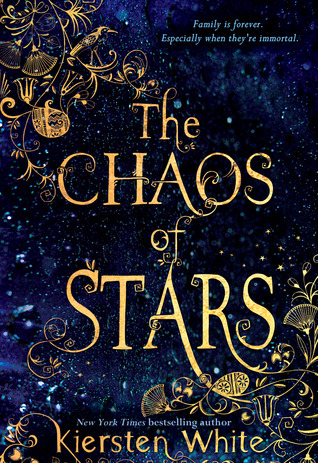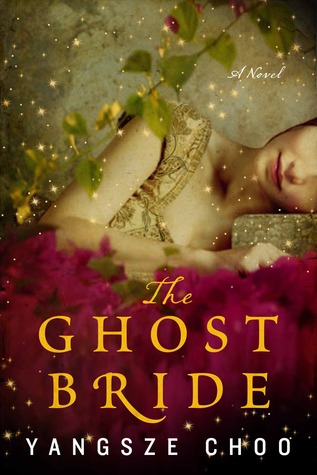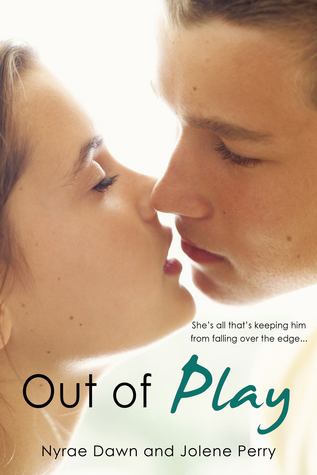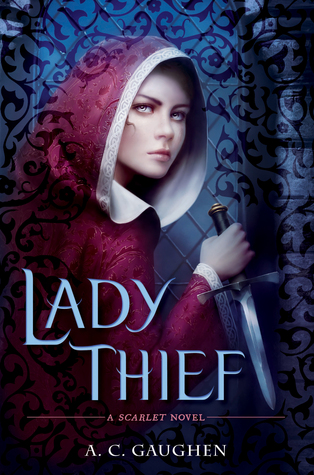This is the fourth part of my tips and tricks for book blogger series, a feature that will be posted every Thursday (except last week! I was too ill!) and will cover topics relating to book bloggers. Hopefully this series will be able to help new (and even old!) bloggers find their footing and get a great start in blogging!
In the first post I covered what ARCs are, and some of the ways you can get your hands on them.
In last week's post I gave step by step tutorials for using eARC requesting platforms NetGalley and Edelweiss with some tips.
Last week I spoke about receiving review copies from publishers, and publisher/blogger interaction.
This week I'm covering an often controversial topic - the dreaded negative review. So, you've used the above guides and managed to get some books for review, but *gasp* you just couldn't get into a book - maybe you finished the book but you disliked it, or maybe you couldn't even get all the way through it and gave up for fear that you'd end up throwing the book against a wall or stomping on your Kindle.
The thing is, you're confused, or nervous. Do you review the book even if you didn't like it or didn't finish it? Won't people hate you? Will you feel mean? Will the publisher boycott you and never let you review their books again? Will you get hate for saying something bad about a book someone else liked?
These are all things that I worried about the first few times I had to write a negative review and I'm sure a lot of other bloggers had similar worries so I'm here to stop you from worrying the same way.
Should I review a book if I didn't like it?
The first thing that I really want to stress is that you don't have to review anything - never feel obligated. If you're really uncomfortable negatively reviewing a book then don't do it.
My opinion on negative reviews is that they're just as important as positive ones. As Nikki from The Paper Sea said:
For one, they are part of the honesty and integrity that we should have as bloggers and as readers... providing only positive reviews hinders more than it helps. It prevents authors from improving their work, and fosters a society of people who can't handle constructive criticism. We already have that problem, with people feeling entitled to praise no matter what.
Really, I couldn't have put it any better myself! (It's true - I suck at putting words together to form sentences - as you can probably tell from these posts and my whole blog. Yes, English IS actually my first language...). The truth is that negative reviews are part of what we sign up for when we establish ourselves as review bloggers - a review is an opinion of a piece of work and the word opinion suggests something subjective. That's why, in my opinion, it's important to make sure you make it obvious in your review that this is your opinion. One of my pet hates is people who say "You won't like this book, don't buy it.", a much nicer way of saying that is "I personally wouldn't recommend this book". That way you're saying that you didn't enjoy it and there's a chance that other people with similar tastes to you won't either, but you're not telling people they won't enjoy it. remember, everyone has different tastes.
I also only review books where I can pick out some redeeming qualities, even if it's an E or D (1/2 star) read, I can still say that it at least showed promise, but it was seriously let down by the execution, or something. I never write a flaming review, it should at least have SOME balance. I've never read a single book where there wasn't at least one thing that was good, or at least showed potential.
What about if I didn't even manage to finish the book (DNF)?
Once again, you don't have to review the book at all and there are no set 'standards' so to speak, it's all up to you. That being said, I have a very set opinion on DNF books which is that if I choose to give up on it because I'm just not feeling like reading it, or I'm in a reading slump - that's my issue, not the books so I put it to on side to possibly read in the future. I won't review it.
I also won't write a DNF unless I've really given the book a good shot. Last week I spent four days trying to get through a book and eventually gave up 200 pages in, I wrote a DNF review for it stating that whilst the book itself was really interesting, I just couldn't handle the overly classical style of writing. As with negative reviews, it's important to mention that there are things that didn't work for you and that's why you gave up, rather than ranting about the book without actually making a point in your 'review' (the word review is in quote marks because I personally don't believe that opinionated rants with little to no actual discussion of the book really counts as a review.
The one thing that gets on my nerves is people writing real DNF reviews for a book they gave up on in the first few chapters or so pages. It may sound a little.... rude I guess... but how can you really supply a balanced opinion when you're only a few pages in? How can you comment on the characters, plot, execution and writing style if you haven't actually experienced it? There are different ways to go about it, you can either not write a review at all, or write a shorter review just mentioning that you didn't finish it, you got however far into the book and some things weren't clicking with you.
Now once again, I want to stress that this is my opinion and whilst I believe that what I'm saying is true, other bloggers may have a different opinion on the matter.
That's just my opinion though and this topic calls for a wider range of opinions so I took to twitter and asked my fellow bloggers to tell me what they though of this topic. These guys are awesome as well, so if you have time please visit their blogs and say hi!
Pili @ In Love With Handmade
"Unless I've got said book as an ARC, I usually just rate the book and give a one line review if I don't like it…"
"[If I got it as an ARC:] Then I do feel like I should review it somehow, and if I haven't finished it just state why I feel I couldn't finish it"
(On negative reviews;)" I am for them: honesty > all else. since people review books to help others decide what to read, that's important. .tips for reviews: be honest, compare only inside the genre (cannot compare HP to 50SoG), make points: setting, writing"
(On DNF reviews) "I also post reviews about DNFs because 1) I didn't know I wouldn't finish the book and 2) again, honesty. I try to read until 30 % or so because some books have slow starts. I always review DNFs, especially if it's a book I was given in exchange for a review"
Manno @ Dilletante Artiste
"I think [negative reviews are] super important, as long as you're civil and clarify that just because you didn't like it doesn't make it bad.:D"
"I definitely think [negative reviews are] needed. It would be bizarre if a book had all positives. As long as the reviewer is polite = no prob! Stating why it didn't work for *you* rather than just stating that its rubbish"
(on what makes a reviewer 'impolite') "slandering the author, saying they 'cant write'."
"I look for all kinds of reviews: positive, negative and DNF. I want a balanced selection of reviews in order to make my decision on whether or not to read a book. Negative reviews definitely do affect my choices - Bennett Madison's THE SEPTEMBER GIRLS is the most obvious (although positive reviews have changed my mind back again!). I think both negative and positive reviews are equally valuable."
"I do DNF books, but it's a rare occurrence. I think my DNF rate is at about 10% right now. I do write mini-reviews for books I've DNF'd, explaining why I chose to do so, but I think DNF reviews should always make it clear that the review doesn't consider the whole book. It's misleading and misrepresentation of the book to do otherwise"
"I think almost always, as long as you say why you couldn't finish it and that others might like it more for such and such reason. But if someone doesn't want to review it I don't think they should have to. Also I find DNF reviews really useful in which books to actually purchase and which to ignore/maybe only borrow from the library"
I also had the awesome Sean Cummings tell me what he thinks of negative reviews. Sean is the author of the awesome YA paranormal series "Poltergeeks"
I just want to request that we all take a moment to savor the amount of awesome in this answer.
"If someone wants to post a negative review of my book, that's their prerogative. Book reviewing is in transition because of social media, blogging, Goodreads, etc. Most book consumers don't read blogs but they might read a review on Amazon. What I dislike are "assholish" reviews wherein the reviewer posts animated gifs to express the words they themselves cannot formulate into a proper review. I dislike abusive tags like "authors I want to stab" and "die author die" on a blog or Goodreads. If someone hates my stuff, groovy, knock yourself out and post a negative review. Shout it from the rooftops if you want. But you can't call it a review when it's a lengthy diatribe or a rant as opposed to a reasoned position. Badly written reviews abound in this day and age of social media and ultimately it all becomes white noise to me because that's basically what snark is - white noise."
That answer is spot on - reviews should be well structured and well written. Sarcastic comments are one thing, but going on an all out tirade against the author because they said something in their book that you didn't quite believe in or because their book somehow 'offended' you? Not cool. You're a reviewer, not a bully. Abusing the author isn't going to get you respect - a few people will smile at your review, but is it really going to give a fair point of view?
Let's take a moment of silence to respect Sean Cummings and this brutally honest answer that, quite honestly, everyone has been thinking!





















